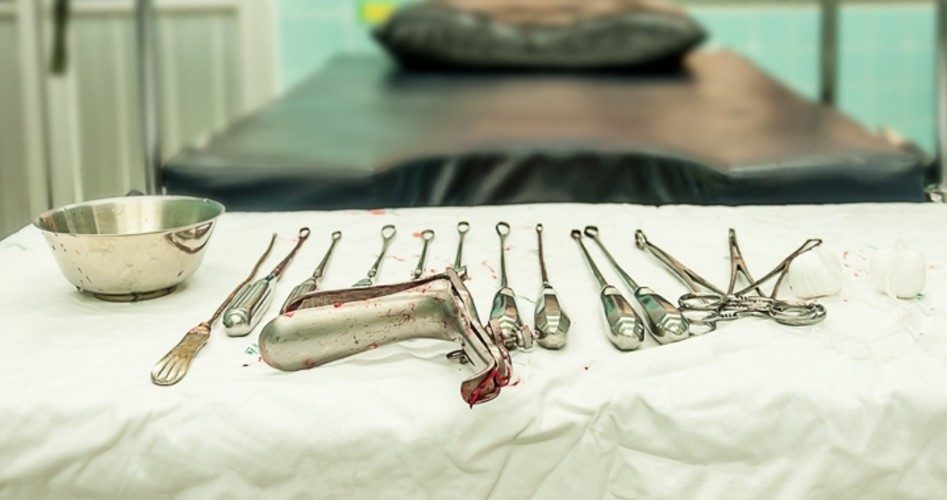
A chain of Texas abortion clinics that fought stricter safety regulations all the way to the Supreme Court is guilty of “dozens of violations of health and safety standards,” reported the Washington Free Beacon.
The pro-life organization And Then There Were None (ATTWN) obtained detailed inspection reports of the Whole Woman’s Health (WWH) abortion-clinic chain from the Texas Department of State Health Services. ATTWN seeks “to help abortion clinic workers leave the abortion industry,” while WWH’s raison d’être is “changing the culture around abortion stigma.”
The reports, which cover the years 2011 to 2017, reveal “a widespread problem of health violations at WWH clinics,” wrote the Free Beacon. Equipment was not properly disinfected or sterilized, and staff members had not been properly trained to sterilize surgical instruments. The Beaumont clinic had no registered nurse on staff despite state law requiring one, and its suction machine used to extract dead babies from the womb had “numerous rusty spots.”
The Free Beacon continued:
Facilities themselves were also in disrepair, with floors that were “stained and discolored which gives the appearance of being dirty.” A 2016 report on the McAllen, Texas, facility notes a counter so warped it “was no longer a wipeable surface, which could harbor bacteria and infectious matter.” The reports also show cracks, rips, and tears on exam tables’ covers, and a hole in cabinet flooring that had “the likelihood to allow rodents to enter the facility.”
More than one clinic was using expired supplies and medication, and one had even lost track of some of its fentanyl supply — an alarming discovery given that drug’s role in thousands of overdose deaths.
ATTWN founder Abby Johnson personally visited a WWH clinic in Austin and came to similar conclusions about the chain’s safety record. “I was appalled at the state of the Austin Whole Woman’s Health. It looked more like a prison than an actual facility where patients went for healthcare,” she told the Free Beacon. “Disgusting does not do it justice.”
Despite the dozens of violations cited in the inspection reports, WWH remains open for business. Why?
“Laws only matter if they’re enforced,” said Johnson. “And what we see in the abortion industry across the country is that inspections are done, people come in, they’re cited for violations, they make a temporary plan to improve, a year later an inspector comes in, they cite them for the same violations, they make a temporary plan to improve … it’s the same cycle, over and over again.”
Ignoring violations at abortion clinics does appear to be a widespread problem. A report from Americans United for Life found that between 2008 and 2016, 227 abortion clinics nationwide, including six WWH clinics, were cited for more than 1,400 health and safety violations.
“Restaurants and tanning salons and vet clinics, they’re all more closely regulated than the abortion industry,” Arina Grossu, director of the Center for Human Dignity at the Family Research Council, told the Free Beacon. She “pointed out how regulators and inspectors often look the other way when investigating abortion facilities,” as in the case of Philadelphia abortionist and convicted murderer Kermit Gosnell, whose filthy clinic was ignored by state regulators out of fear that inspections would be perceived as “putting a barrier up to women” seeking abortions.
Indeed, the Beaumont report suggests that abortionists and their overseers have a shared mindset. The inspector described the rusty suction machine as being used “for evacuation of the products of conception,” a euphemism only an abortion proponent would employ.
The inspection reports aren’t the only indication that WWH doesn’t value safety very highly. After Texas passed a law in 2013 imposing more stringent health and safety requirements on abortion clinics — mandates that, according to Johnson, even Planned Parenthood has largely obeyed — WWH sued to overturn the law, arguing that it violated both WWH’s and its clients constitutional rights. The case wound up before the Supreme Court, which sided 5-3 with WWH.
Supreme Court notwithstanding, states have an obligation to shutter unsafe abortion clinics — and then some. After all, even if clinics could be made 100-percent safe for their clients, they would never be safe for the unborn children who enter their doors alive and leave dead.
Photo: Thhinkstock



